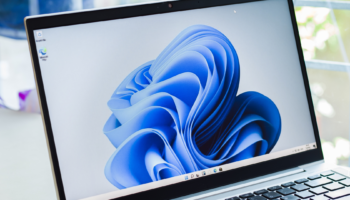Mark Zuckerberg has tested the Apple Vision Pro and believes that the Meta Quest 3 is “the better product, period”. This is unsurprising given that his company manufactures the Quest 3, but after considering all of his points, he does have a point: in many ways, the Quest 3 is superior to Apple’s high-end model.
In his Instagram video, Zuckerberg begins by stating that the Quest 3 has a more remarkable interactive software library than the Vision Pro, which is currently true. Yes, the Vision Pro features Fruit Ninja, some other spatial apps (as Apple calls them), and lots of ported-over iPad apps, but nothing on the Vision Pro comes close to Matching the quality or immersion levels of Asgard’s Wrath 2, Walkabout Mini Golf, Resident Evil 4 VR, The Light Brigade, or any of the many fantastic Quest 3 VR titles.
It also lacks fitness applications. I’m now testing some for a VR fitness experiment (the findings will be available in March), and I’ve fallen in love with working out on my Quest 3 in applications like Supernatural. The Vision Pro not only does not provide these types of experiences, but its design is also unsuitable for them – the hanging wire may get in the way, and the fabric facial interface would become soaked in sweat; in my experience, a silicone facial interface is a must-have.

The one software area where the Vision Pro excels is video. The Quest platform currently lacks the finest VR streaming options, with only YouTube and Xbox Cloud Gaming available, and it is unknown whether or not this will change. When I asked Meta if it had plans to bring more streaming services to Quest, a spokeswoman informed me that there was “no additional information to share at this time.”
Zuckerberg also addresses certain design concerns. The Vision Pro is heavier than the Quest 3, and using the cool-looking Solo Knit Band will not provide the best comfort or support; instead, most Vision Pro testers recommend using the Dual-Loop band, which more closely resembles the design of the Quest 3’s default band due to its over-the-head support.
You also cannot wear glasses with the Vision Pro; instead, you must purchase pricey inserts. When using the Quest 3, just extend the headset away from your face with a slider on the facial interface to accommodate your glasses.
Then there’s the scarcity of controllers. Unless you’re playing a game that requires a controller, the Vision Pro relies exclusively on hand tracking. I haven’t used the Vision Pro, but every account I’ve read or heard, including Zuckerberg’s, has made it clear that hand-tracking isn’t any more reliable on the Vision Pro than it is on the Quest, with the general sentiment being that it works flawlessly 95% of the time, which matches my experience with the Quest 3.

Controllers are less immersive, but they help to enhance precision, making activities like VR typing much more reliable without the use of a physical keyboard. Furthermore, given that the majority of VR and MR software currently available is Software developers have told us that having handsets on the Vision Pro would make porting their creations much easier.
Finally, there is the worth. Every Meta Quest 3 vs Apple Vision Pro comparison will bring up pricing, so we won’t dwell on it, but there’s a lot to be said about the Meta headset’s lower price of $499.99 / ₹50045.10 / AU$799.99 rather than $3,499 (it’s not currently available outside the US). Without a question, the Quest 3 provides far greater value for money.
Vision Pro: not down or out
However, while Zuckerberg makes some compelling arguments, he glosses over how the Vision Pro outperforms the Quest 3 in certain areas and exaggerates how much better it is in others – and these are not minor things.
The first is mixed reality. When compared to the Meta Quest Pro, the Vision Pro is light years ahead; however, comments from people who have tested the Quest 3 indicate that the Vision Pro does not provide as big of an upgrade – and in some ways, as Zuckerberg admits, it is worse.
To demonstrate the Quest 3’s passthrough quality, Zuckerberg discloses that the video of him comparing the two headsets was shot with a Quest 3, and it looks very decent – though having used the headset, I can tell you that this isn’t reflective of how passthrough actually appears. Mixed reality recordings on Quest always appear more vivid and less grainy than live experiences, most likely because to how the video is handled.
Based on less biased accounts from people who have used both the Quest 3 and the Vision Pro, it appears that the live passthrough stream on Apple’s headset is generally less grainy, but not flawless; nonetheless, it has significantly worse motion blur when you move your head.
Zuckerberg also criticizes the Vision Pro’s displays, noting that they appear less bright than the Quest 3’s LCDs and have a shorter field of view. Both of these arguments are valid, but I believe he does not give Apple’s headgear enough credit for two other crucial features.

While he does agree that the Vision Pro has a greater resolution, he does so just briefly. The Vision Pro’s dual 3680 x 3140-pixel displays will provide a far sharper experience than the Quest 3’s dual 2064 x 2208-pixel screens. Given that you use this screen for everything, the benefit of better visuals can’t be overstated – and a higher pixel density should also mean the Vision Pro is more immersive, as you’ll experience less of a screen-door effect (where you see the lines between pixels because the display is so close to your eyes).
Zuckerberg also ignores the fact that the Vision Pro’s screens are OLEDs. Yes, this will mean they’re less vibrant, but the upshot is that they offer much better contrast for blacks and dark colors. Better contrast has been shown to improve a user’s immersion in VR based on Meta and other’s experiments, so I wouldn’t be surprised if the next Quest headset also incorporated OLEDs – rumors suggest it will, and I seriously hope it does.
Finally, there’s eye-tracking, which the Quest 3 lacks entirely. I don’t believe the lack of eye-tracking is a problem, but it deserves its own article.
Regardless of whether you agree with any or all of Zuckerberg’s arguments or none of them, one thing that’s clear from the video is that the Vision Pro has got the Meta CEO fired up.
He ends his video by stating his preference for the Quest 3 and Meta’s open model (as opposed to the Apple’s closed-off walled-garden setup, which limits you to only using the headset in the ways Apple wants you to) to “win out again” like Windows in the computing space.
But we’ll have to wait and see how it works out. As Zuckerberg himself admits, “The future is not yet written” and only time will tell if Apple, Meta or some new player in the game (like Samsung with its Samsung XR headset) will win in the long run.







1 Comment